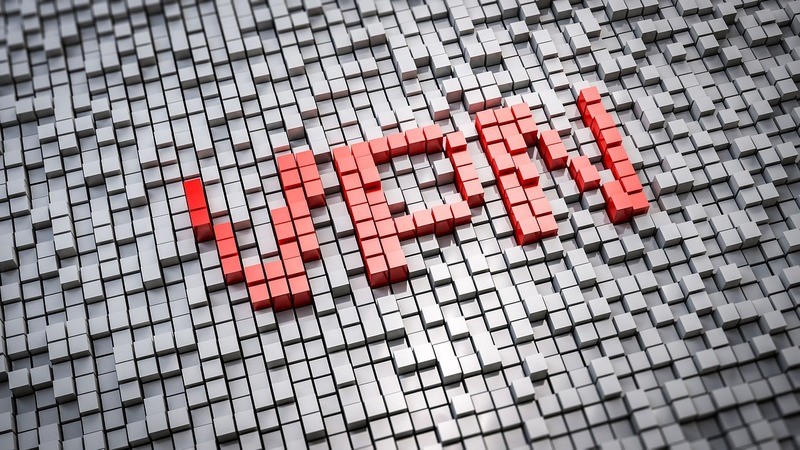When you use a VPN to connect to the web, every data packet needs to be encrypted. This can result in a slight decrease in your connection speed. However, the reduction in internet speed should not be enough to cause you any inconvenience.
Here are a few tips and tricks to improve your VPN speed:
- Use a hardwired ethernet connection.
Wireless connections are extremely convenient and allow you the freedom to move around with your device as opposed to being tethered to an area by a cable. However, using a wireless connection with a VPN service can cause slower internet speeds due in part to multiple devices sharing the same channels.
A hardwired connection to the internet via an ethernet port will result in less latency and boosted speeds. So, if it’s possible to get a wire from your router to your laptop, you can enjoy an enhanced experience from your VPN service.
- Change servers.
If you are connecting to a VPN server located a long distance away, there is a high chance that your internet connection speed will suffer. The further away a server location is, the higher the latency and the slower your connection. Bandwidth limitations between countries and the multitude of networks data has to travel through all increase latency.
The further your data has to travel; the more packets get lost resulting in slower speeds. Choose a VPN server that is close to your location to boost your upload and download speeds. Most VPN services allow you to switch between servers in different locations, so select the server closest to your home or workplace.
Note that if the server located closest to you is prone to congestion, you might not notice an increase in connection speeds and could even notice a decrease.
- Reboot the router.
Your connection speed could be slow due to memory leaks. The VPN software on your router uses lots of resources, and cheap routers often lack the processing power to deal with VPN connections. Consequently, rebooting your router might free up to some resources on the router and make your connection faster.
Restarting your router might sound very simple, but it could actually be all that’s needed. You might also want to use a service on your computer to connect to a VPN server rather than using the VPN settings on your router. VPN connections that are managed by a router are generally slower, especially if the router is old or a basic model.
- Turn off any local security software.
While local firewalls and security software protect your computer from malware, they can also impair the performance of a VPN service. Try disabling them for a short while and check if your connection speed increases. Keep in mind that turning off local security software is a risky option, as it will make your system more vulnerable to hackers, viruses, and malware.
If you want to keep security software running, turn off the automatic back-up and update options. Doing that will ensure that the software does not consume as much of your bandwidth while you are using the internet.
- Adjust protocol settings.
Your VPN experience could be slower due to your internet protocol. You will find the option to switch protocols in the “Advanced Settings” tab. The options available will be IKEv2, Open VPN, and several other protocols. Once you figure out which one is the fastest, make the switch. The drawback with some protocols, however, is network instability.
Faster protocols are generally less secure. If you can deal with a less secure connection, however, you can ensure a boost in VPN speeds. The OpenVPN protocol provides the best security, but it comes at the expense of connection speed. Meanwhile, the PPTP protocol offers the fastest connection speeds, but it has a lower security level. You need to decide whether you value speed or security more and then choose the appropriate protocol settings.
- Check your network connection and internet speed.
You could be wasting time trying to troubleshoot the VPN connection when the problem lies with your own internet connection and ISP settings. Try connecting to the internet with the VPN service disabled to see if your original connection is also slow. If so, the problem could be with your ISP and not the VPN service provider. You might need to change to a different internet provider or plan.
A weak network signal will cause lower speeds regardless of whether you use a VPN service. So, ensure your device has a strong network connection.
- Use a different device.
VPN services require processing power from your device for data encryption. Older devices tend to be less efficient when a VPN service is enabled. Perhaps it’s time to upgrade your device to one with more processing power. A VPN isn’t exclusively for use on your devices at home. Check out the best android vpns for your mobile device.
- Reboot your device.
If after trying everything else you don’t notice any changes in your VPN connection speed then it’s worth restarting your device. If you have been surfing the net for several hours, your laptop or phone might just need a reboot.
The operating system can become clogged with temporary files, and rebooting can rectify any improper connections.
Conclusion
If you take the time to investigate latency issues with your connection, you can boost the speed of VPN services. Any of the tips presented above have the potential to restore your VPN network connection to full speed. Give some of them a try, and you could soon be enjoying greater speeds with the enhanced security offered by a VPN service.


